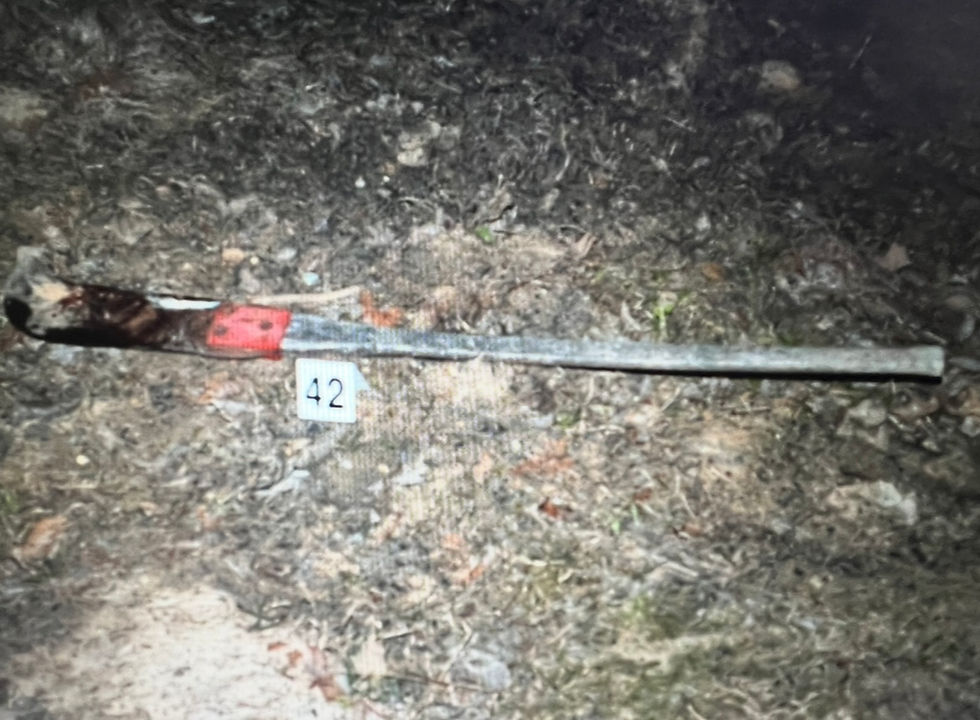When a Judge Did Not Recuse: The Case of Stephen Shirron
- jughead73
- Sep 14, 2025
- 4 min read
Updated: Sep 17, 2025

Judicial Impartiality in Question
The Arkansas Code of Judicial Conduct requires judges to step aside whenever their impartiality might reasonably be questioned. Yet in the cases tied to the murder of my husband, Patrick Massey, Judge Stephen Shirron did not recuse — despite clear conflicts documented in emails, court transcripts, and campaign finance records. His decision not to step aside undermined fairness not only for me, but also for the other victims harmed by Philip Reynolds.
From Prosecutor to Judicial Candidate
Patrick was murdered on March 28, 2019, while Shirron was serving as Chief Deputy Prosecutor in the Grant County Prosecuting Attorney’s Office. At that time, Teresa Howell was the elected Prosecuting Attorney, and Norman Frisby was the Deputy Prosecutor.
Just weeks later, on May 7, 2019, Shirron formally registered as a candidate for the 2020 judicial election.
And on June 25, 2019, an internal email documented a meeting at the Grant County Sheriff’s Department where Shirron, Howell, and Frisby discussed the status of the Philip Reynolds homicide case. This shows that Shirron had direct involvement in the case while already positioning himself for the bench.
Election and Judgeship
In January 2020, campaign finance records show that Edwin Reynolds — the father of Philip Reynolds — contributed $500.00 to Shirron’s campaign. See Memorial Journey and Case Evidence Blog for a copy of the donation.
In November 2020, Shirron was elected judge. He officially took the bench in January 2021.
The June 2021 Zoom Hearing
On June 22, 2021, Judge Shirron convened a Zoom hearing “to address an issue that has come to the Court’s attention” — his prior role as prosecutor and awareness of the Reynolds case.
On the record, Shirron acknowledged that he had been aware of the case while in the Prosecutor’s Office. He then asked if anyone objected to him presiding.
Prosecutor Teresa Howell: “No, the state does not object.”
Defense attorney Scott Brizendine: “No, we do not, Your Honor.”
Shirron concluded: “As long as it is satisfactory to both the defense and the state, then the Court doesn’t believe it has a conflict.”
The transcript shows several attorneys were present, though the full list of everyone on the Zoom is not entirely clear. The victims’ families — including myself — were present only as observers as Shirron states in the hearing. Later that day, his order was filed with the court clerk.
The 2024 Judicial Complaint
In June 2024, I filed a formal complaint with the Arkansas Judicial Discipline & Disability Commission (JDDC). That complaint documented:
Shirron’s employment in the PA’s office at the time of Patrick’s murder.
His May 2019 judicial election registration.
The June 2019 homicide meeting.
The June 2021 transcript where Shirron admitted prior knowledge and both sides waived objection.
His acceptance of a $500 campaign contribution from Edwin Reynolds in January 2020.
At that time, our wrongful-death civil lawsuit had not yet been filed. That case began in May 2025.
The Civil Case: Massey v. Edwin, Peggy, and Philip Reynolds
In May 2025, we filed a wrongful-death civil lawsuit against Reynolds LTH, LLC, Edwin Reynolds, Peggy Reynolds, and Philip Reynolds. The case was assigned to Judge Shirron — who once again did not recuse, despite his earlier involvement and the documented campaign contribution from Edwin Reynolds.
The Rules That Should Have Applied
The Arkansas Code of Judicial Conduct, which guides the AJJDC, sets out clear standards that every judge must follow:
Rule 1.2 – A judge shall act at all times in a manner that promotes public confidence in the independence, integrity, and impartiality of the judiciary.
Rule 1.3 – A judge shall not abuse the prestige of judicial office to advance the personal or economic interests of the judge or others.
Rule 2.11(A)(1) – A judge shall disqualify himself if his impartiality might reasonably be questioned, including where the judge has personal bias or prejudice concerning a party.
Rule 2.11(A)(6)(a) – A judge shall disqualify himself if he served as a lawyer in the matter in controversy.
Rule 2.11(A)(4) – A judge shall disqualify himself if he knows that he, as a candidate, has received a campaign contribution from a party that raises reasonable questions about impartiality.
Despite these obligations, Judge Shirron did not recuse from either the criminal or civil cases connected to Patrick’s death.
Demand Accountability
Judges are bound by rules designed to protect fairness. When those rules are ignored, the public loses faith in justice. Patrick’s case — and those of the other victims harmed by Philip Reynolds — show what happens when a judge does not recuse, even in the face of clear conflicts.
I have shared the transcripts, emails, and campaign finance records so the truth can be seen in full. But sharing the truth is only the first step.
📢 Please help us demand accountability:
If you find this appalling as we do, please consider filing a complaint with the AJDDC. You do not have to be a party to a case to file a complaint against a judge. Complaint Form - Judicial Discipline & Disability Commission



Comments